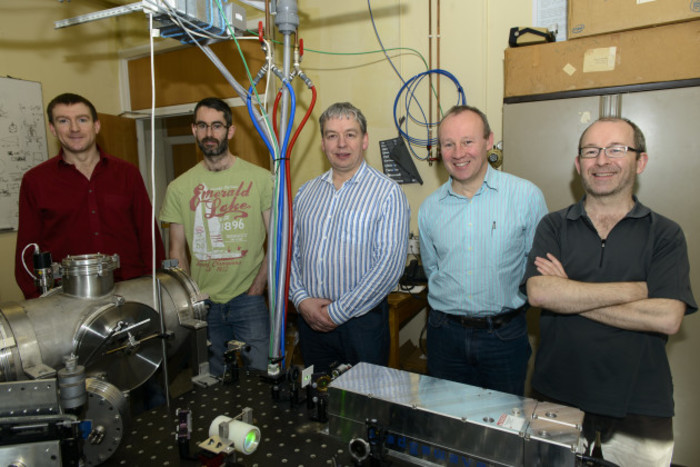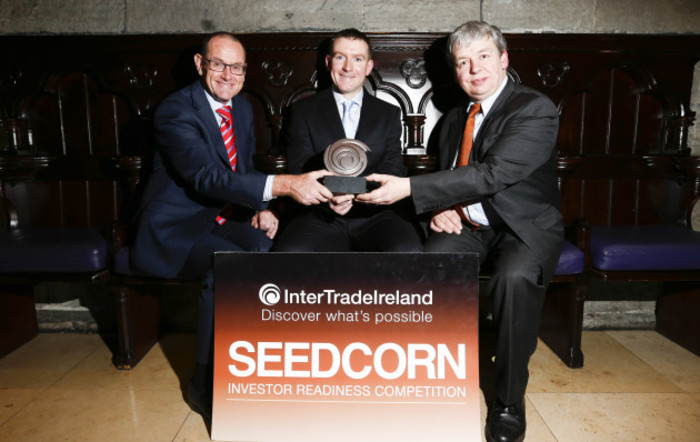After a decade of research, this spin-out company is about to build its world-first x-ray
NovaUCD-based SiriusXT has been working on a revolutionary €2 million-plus device.
AFTER MORE THAN a decade of research, SiriusXT is ready for the final push in developing its revolutionary x-ray technology.
The UCD spin-out company, which was only formed in October after 11 years fine-tuning its concept, has received a €3 million cash injection from the EU to commercialise the work.
The Horizon 2020 programme funding will be used to produce a prototype of its x-ray microscope, which will allow users to create 3D images of cells and tissue samples.
Based out of NovaUCD, SiriusXT has eight people on the books, including experienced tech founder Tony McEnroe – who joined the company as chief executive last year.
Speaking to Fora, the company’s co-founder and head of tech, Dr Fergal O’Reilly, said the company needed someone like McEnroe with the experience of guiding a business through its baby steps.
“We have a lot of technical background, but Tony’s background means he has been extremely helpful in raising the funding we have got so far,” he said.
“His business background means we can cut through a lot of things we wouldn’t have understood otherwise and it has helped us focus on what we’re best at. We can really concentrate on what the end users want and designing a product that fits around that.”
McEnroe was the founder of Farran Technology, a weapons detection firm, that he later sold for a reported €24 million in 2005.
 SiriusXT co-founder Fergal O'Reilly (Right) with CEO Tony McEnroe (centre)
SiriusXT co-founder Fergal O'Reilly (Right) with CEO Tony McEnroe (centre)
Prototype
SiriusXT also recently closed a private funding round after revealing plans to raise €1.5 million in December, although O’Reilly wouldn’t disclose the final sum achieved.
Its aim is to have a prototype ready by early 2017 to be used as part of a pilot programme in a ”major research centre in Europe”, he added.
The x-ray will help researchers view high-resolution imagery of biological material, which will in turn allow scientists to track how drugs and disease affect specific cells.
O’Reilly said the company’s main target market is research laboratories worldwide, giving it a potential market in the thousands among the top disease centres and pharmaceutical companies.
He said its final product was expected to cost a similar amount to traditional transmission electron microscopes, which are priced between €2 million and €2.5 million apiece.
 Dr Kenneth Fahy (left) and Tom McEnroe (right) of SiriusXT
Dr Kenneth Fahy (left) and Tom McEnroe (right) of SiriusXT
O’Reilly said he expect the company to hire more staff over the coming years to bolster its complement of engineers and physicists, while it may also look to expand outside its current office on the college campus.
Two other Irish companies, gaming software firm Artomatix and biotech startup Nuritas, also secured money from the latest round of Horizon 2020 funding.
Another recent recipient of the funding from the programme, which has funded 19 Irish SMEs during its second phase, was Dublin-based Exergyn, which is developing an engine which runs on waste water.





